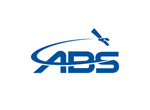Member News
Additional News
|
News Views
8 December, 2017
Member News
Additional News
|
1 December, 2017
Member News
Additional News
|
24 November, 2017
|
 |
Clare Bloomfield |
Whilst much of the focus of the industry news this week is obviously on the US and the FCC roll-back of net neutrality, research from the other part of the world shows that the UK is at the epicentre of the explosion in OTT VOD services across the European Union and Turkey, although the Dutch are apparently catching up fast. Although, as a piece by the BBC shows, statistics and measuring can often be misleading, especially if you are trying to measure how much media has been consumed online.
 |
Cathryn Chase |
The UK’s Intellectual Property Office (UKIPO), often heralded as the world leader in anti-piracy enforcement, has released an official guidance on Illicit Streaming Devices (ISDs), in which they state their stance on the legality of ISDs. In the guidance, the government clarifies that “the devices are legal when used to watch legitimate, free-to-air, content; they become illegal once they are adapted to stream illicit content”. The guidance also offers useful information on identifying ISDs, and the dangers of using these devices. The legality of ISDs has been a grey area for consumers and governments alike, but strong statements from intellectual property offices like this one go a long way in clarifying the reality of the situation.
 |
John Medeiros |
The Alliance for Creativity and Entertainment (ACE) has continued its enforcement campaign against “Kodi” repositories housing piracy apps. A bunch of developers received cease-and-desist notices, and some prominent piracy-oriented add-ons have closed down and left the market. But it’s not going to be completely smooth going, as some of the developers are vowing defiance. One (pursued by Dish-TV) is looking for crowdfunding to pay legal costs so he can resist, in the courts. He’s worried about being unable to pay for lawyers. Of course, his financial prospects would improve if he’d stop the piracy and get an honest job…..
 |
Jane Buckthought |
In 1996, the United Nations General Assembly proclaimed 21 November to be World Television Day. On this very special – if rather arbitrary – date, we are meant to spend the day celebrating, promoting and proclaiming the power of telly – which is still worth doing. With all the palaver about digital, TV broadcasters and trade bodies from around the world have joined together for the first time to release global figures that look to prove TV’s effectiveness as an advertising medium. The Global TV Deck compiles data from an initial 19 countries to give a more robust picture of TV’s reach, popularity, resilience, trust, impact, and effectiveness across different regions.
 |
Mark Lay |
In my ongoing effort to try to dominate OTT related stories in News Views here are the ones I found most interesting this week. Find out What Pay-TV operators must do to keep the ‘Content Connoisseurs’ happy. Defined as fickle, demanding and quick to churn… reminds me of a an ex, or two. See how TV networks are addressing the evolving demands of marketers and audiences. My fave line, “is someone watching an episode of their favourite program on catch-up during the middle of the day now worth the same value to an advertiser as the same viewer watching during ‘traditional prime time”? China, Middle East, Australia and Africa: Launching OTT in emerging markets on four continents. And because it comes to the heart of OTT and massive disruption in the industry, Murdoch Sale Talks Underscore Digital’s Effect in Disrupting Hollywood. “Malone, an architect of the cable service industry, said it was essentially game over for the old guard to catch up with Netflix.” “The only counter-attack, in the view of many biz watchers, is for the largest content providers and distributors to grab market share through acquisitions and to become more global as fast as their feet can take them overseas.” More stories on the CASBAA OTT Group Newsfeed.
 |
John Medeiros |
Here’s a juicy tidbit for longtime observers of Taiwan’s cable wars. The NCC has moved against cable MSO Kbro for unplugging a couple of channels originated by FTA broadcaster Formosa TV, after FTV did a carriage deal with Chung Hwa Telecom’s MOD platform. Everybody knows that for years the cable operators wouldn’t let channels carried on MOD also appear on their platform, but the NCC now says they are going to enforce laws and antitrust settlements requiring equal access for all channels. Stay tuned.
 |
Jane Buckthought |
WARC (an online service offering advertising best practice, evidence and insights from the world’s leading brands) has released its first Global Ad Trends Report, offering new insights into global adspend trends. The study shows that TV accounts for 66% of media spend in successful high budget ($10m+) ad campaigns, 8% for low budget campaigns (up to $500k), and between 25-60% for mid-budget campaigns ($500k to $10m). Despite the rise of online advertising, high-budget campaigns continue to focus on TV, which accounts for 24% of daily media consumption. WARC’s data also reveals that TV drew 34.9% ($141.8bn) of global adspend last year whilst the proportion of budget allocated to TV has also increased.
See more at warc.com.
 |
John Medeiros |
The tug-of-war between Vietnam’s Ministry of Information and Communications and user-generated content (UGC) platforms continues. The MIC Minister told Parliament that Facebook hasn’t been sufficiently cooperative in blocking what the government calls “toxic” content. Google and YouTube have been better, he said. The government is looking at legislating new rules (with possible penalties), and also at promoting indigenous Vietnamese social media platforms that might be more cooperative.
- Amrita Pandey to Head Media Distribution, OTT for Walt Disney, South Asia
- BBC Worldwide to strengthen India content
- beIN embraces cricket with Australian rights deal
- Blue Ant Media Announces Key Leadership Appointments to Global Networks Division
- Blue Ant Media’s Ward Platt
- Brick by brick: Viacom18’s growth mantra
- Celestial Pictures Expresses Deepest Condolences On The Passing Of Lady Mona Fong-Shaw
- Essel/Zee Group’s Living Entertainment Gears Up For New Channel Launches
- Eutelsat all-electric EUTELSAT 172B satellite set to transform connectivity landscape in Asia-Pacific
- Fox acquires Chinese content
- GroupM: 2017 will end better than expected
- HBO CEO Richard Plepler on Growth, Sexual Harassment, and Life After ‘Game of Thrones’
- How Turkey’s TRT World Wants to Win Over U.S. Online Video Viewers
- India to get 5G by 2020 says Ericsson
- Justice Department Sues to Block AT&T-Time Warner Merger
- Punit Goenka: ‘We Are Ready For The Next Level Of Growth’
- SPN India recognised as one of the best companies for women in India
- Star Plus Celebrates Ideas with TED Talks India Nayi Soch
- Sudhanshu Vats On Viacom18’s Decade-Long Journey in India and the Road Ahead
- Tata Sky Beauty inspires women to discover their own definition of beauty
- Tata Sky issues notice to remove five channels
- Turner’s David Levy: ‘We measure success holistically, not just on television’
- TV Plus Renews Commitment for Satellite Distribution Services on Premier Video Neighborhood Intelsat 19
- Viacom CEO Bob Bakish bullish on $500 mn India business
- Warner TV and the latest Hollywood TV shows & films now available on Tribe
- Watch The Entire Four-Part Hbo Asia Original Documentary Series The Talwars: Behind Closed Doors For Free On Hbo Asia’s Website
- Hong Kong Listing Can Help Naspers Escape Tencent’s Shadow
- India opens up ISRO to private companies
- India: Broadcasting: A Case for Single-Window Clearance
- India: Cases against four websites for piracy
- India: Digital Ad Spending In India to Cross Rs 13,000 Cr Mark by 2018: ASSOCHAM
- India: The rise and fall of English news’ TV viewership
- Netherlands: 170 ‘Pirate’ IPTV Vendors Throw in the Towel Facing Legal Pressure
- Regional OTT content more than just catch-up TV
- Singapore: Deadline for end of analogue TV broadcast extended to end-2018
- Tangled message on AT&T’s power, net neutrality
- Thailand: TV association requests aid measures for a third time
17 November, 2017
|
 |
John Medeiros |
It’s been a while since we’ve checked what’s going on in Washington: Current FCC Chairman Ajit Pai has been energetically following a deregulatory agenda, which might actually bring some of the antique US regulatory environment into the 21st Century. Whatever you think of the “net neutrality” reform that Pai has pursued (which continues to be a bone of contention), a LOT of his other stuff makes huge good sense:
 |
Clare Bloomfield |
The ongoing battle for sports-content has Amazon entering the field as there is a strong indication that it has secured the UK rights to the US Open tennis tournament, with a possibility now open for them to be a strong contender for the EPL rights when the bidding opens early next year. The potential addition of the US Open tennis tournament to Amazon’s earlier acquisition of the 5-year rights to the ATP World Tour, in which they outbid Sky, gives a clear indication of their desire to increase their focus on sports coverage.
 |
Cathryn Chase |
Top Indian telecom operators are calling for the same data protection rules applied to them to also be applied to OTT communications apps, such as WhatsApp. While telecom service providers said that the regulations currently applied to licensed operators in their sector are robust and sufficient, they argued that the same norms to safeguard consumer data are not being applied to OTT players who offer comparable services. Other industry bodies, such as the internet freedom foundation, have gone further by emphasising the need for more comprehensive legislation on the matter. While the current discussion is focused specifically on the telecommunications industry, it also applies to OTT video service providers, who similarly remain largely unregulated in APAC and in other regions.
 |
Mark Lay |
Some notable OTT-related stories of the week. Amazon has apparently scrapped it’s plans for a skinny bundle. Are traditional networks wary of creating another monster? Ad-supported OTT content is not a fad and it’s supposed to take off in 2018. According to longtime CASBAA friend, Bruce Tuchman, House moves are killing the basic pay bundle. For the curious, albeit non-techy type, a simplified version of what happens when you hit play on an OTT service. From Irdeto, take an inside look at Live streaming piracy – the darker side of social media. And, to finish off, the competition for your viewer’s time and attention just grew yet again with this very cool mix of game and video, Is HQ Trivia the future of TV? Get your victory dance planned out. (Inside joke for those who watch the video.) A plethora of more OTT news at the CASBAA OTT Group NewsFeed.
 |
Kevin Jennings |
Pakistan can expect to see a bit of a shake up with the news that the state broadcaster Pakistan Television Corporation (PTV) has been told to prepare for the launch of DTH television. The government has told PTV to initiate work immediately to provide “state of the art, affordable, uninterrupted and quality services” on par with international platforms. Launching a DTH service in Pakistan is part of the current policy to change the digital landscape of the country which also includes the introduction of 4G and 5G mobile technology. Earlier in 2017, three licences to private operators to launch DTH TV services in Pakistan were declared null and void after legal concerns over PEMRA’s eligibility guidelines.
 |
John Medeiros |
People who’ve been negotiating/arguing over Chung Hwa Telecom’s arrangements with foreign channels might be interested in this profile of CHT’s current CEO,who talks about their new “fair cooperation mechanism” with channel providers. Oh.
 |
Jane Buckthought |
Brand safety when advertising is one thing, but how about analysing how safe is your ad expenditure and planning. New research from the UK shows that TV ads create 71% advertising-generated profit according to a study by Ebiquity and Gain Theory, commissioned by Thinkbox. The study has, for the first time, quantified the total profit generated by different forms of advertising to show what they deliver to the bottom line. It found that all forms of advertising create profit to varying degrees in both the short and long term. But TV is the safest by far.
 |
John Medeiros |
Commentaries on the effects of piracy: This one, from San Diego, takes an ethical approach: “Before you, too, get sucked in by the proposition of free everything, I implore you to think about what you’re doing….it’s a matter of right versus wrong, and even kindergartners know it’s wrong to steal.” In New Zealand, this article on copyright policy includes a devastating statistic, on the impact of piracy on a small media economy: “Over the last ten years the value of copyright in music, books and audio-visual content in New Zealand has dropped 35-40 per cent.” Are the Asian economies listening? Singapore, for one, seems to have other goals in mind.
 |
Christopher Slaughter |
GroupM has released its “State of Video” report, examining the rapidly changing dynamics surrounding the consumption of premium video content. It’s a dense, information-packed 48 pages, but you can skim through Campaign’s top 5 takeaways if you’re pressed for time; the scariest is the prediction that “Millennials will never take to traditional TV (more than they are now)”. But the whole report is worth downloading, take your time and read it all the way through. (Love this line: “We live in a world of abundance which democratizes creation, atomizes audiences and fragments attention.”)
 |
Clare Bloomfield |
An in-depth report this week by PwC highlights that 62% of US consumers have a hard time finding something to watch, and 55% are looking for a new TV show or movie at least once a week. It goes on to report that aimless browsing has become a primary means of content discovery and PwC also found that Pay-TV subs are less frustrated over content discovery than streaming-only users; 38% of Pay-TV customers enjoy searching for new video content, as compared with 31% for cord-cutters and 23% for cord-nevers.
 |
John Medeiros |
From Russia comes news that strict enforcement (site blocking) against online piracy is in store – but only for Russian works.What happened to those international copyright treaties? Mercantilism lives.
 |
Kevin Jennings |
No sooner was the CASBAA Convention over when we started to see our first Xmas TV Ads being rolled out in the UK. Schmaltz from John Lewis whilst M&S use Paddington Bear, who unwittingly saves the big day, and a bit of controversy from TESCO after complaints from a very small minority of viewers. The supermarket’s one-minute festive ad follows various families from different backgrounds celebrating Christmas Day and preparing their respective turkeys, with one scene showing a Muslim family greeting each other with gifts as they arrive at someone’s house as well as a Sikh family sitting around the table pulling crackers. Tesco’s response to the complaints was that the advert was promoting diversity and “Everyone is welcome at Tesco this Christmas and we’re proud to celebrate the many ways our customers come together over the festive season”.
- A+E Networks integrates Outdoor Channel into content offering
- A+E Networks Takes Stake in Dan Abrams’s Live Trial Website
- A+E Networks® Strikes Strategic Alliance With Outdoor Channel
- Amit Malhotra to head Disney ops in Singapore, Malaysia
- AWS Elemental to Receive HPA Honor for First Public 4K Live Stream From Space
- BBC Global News Ltd Appoints Charlie Villar To New Coo Role
- Cartoon Network Partners With Sundaytoz To Launch Global We Bare Bears Game
- CNN vs. BuzzFeed: A media spat for the digital age
- Comcast jumps into bidding for 21st Century Fox’s media assets
- Disney plans big for Mickey’s 90th birthday
- Ericsson Broadcast and Media Services becomes Red Bee Media
- Fox Asia president Zubin Gandevia on staying relevant, streaming and why advertising on TV promotes brand safety
- Gerry O’Sullivan joins Eutelsat as Executive Vice President, Global TV and Video
- HBO Asia Receives 3 Nominations At The 22nd Asian Television Awards
- Irdeto, Foxtel extend security partnership
- Live streaming piracy – the darker side of social media
- Maiden Landing of BBC Brit in South Korea
- Media & Entertainment powerhouse ZEE Entertainment promises to be Extraordinary Together
- New Directors Appointed To The Board Of Eutelsat Communications
- Rupert Murdoch Is The Media’s Unlikely Hero In The War Against Facebook And Google
- Streaming services scooping up big 4 affiliates as competition grows – Research according to S&P Global Market Intelligence
- Tricolor TV and Eutelsat launch Territoria Tricolor
- Trinity Broadcasting Network Recommits to the Intelsat Galaxy Fleet, Extending Long-Term Distribution Agreement for Another Decade
- Viacom, Discovery, A+E, Scripps and AMC Team Up for Sports-Free Streaming Skinny Bundle
- 4K Still Too Early for Widespread Adoption – But It Will Come
- Amazon beats everyone to Lord of the Rings TV rights
- Australia: ABC restructure: biggest shake-up in broadcaster’s history to be revealed
- Channel 4 in European TV ad alliance to take on Google and Facebook
- Chinese online streaming services will grow ‘phenomenally’ in the next 5 years – CASBAA
- Fox News Bans Kiss Frontman Gene Simmons for Life
- Google fights landmark Canadian anti-piracy ruling in US court
- Hollywood Studios Force ISPs to Block Popcorn Time & Subtitle Sites
- How Apple Should Fix Apple TV
- Joint European operation against online piracy
- Spain: 7 football piracy arrests
- Sports Illustrated TV: Time Inc.’s First Subscription VOD Is $5 Monthly on Amazon Channels
- Too Many Shows? Peak TV Overwhelms Viewers, Survey Finds
- TRAI moves to put an end to placing registered channels on landing page
- USA: Philo streams pay TV without sports, broadcast channels for $16/month
- Why the Standing Committee on Copyright and Related Rights Matters for India
3 November, 2017
Member News
Additional News
|
27 October, 2017
Member News
Additional News
|
20 October, 2017
Member News
Additional News
|
13 October, 2017
Member News
Additional News
|
6 October, 2017
|
 |
John Medeiros |
There’s been a lot of back-and-forth about Kodi boxes this week. (European and North American discussion of ISDs is dominated by references to Kodi, as use of that software is much bigger in those regions than here in Asia) You may recall that the Kodi “add-on” domain TVAddons is under legal pressure in Canada and the USA. For their part, the actual developers of the Kodi software (and owners of that trademark) say they wish TVAddons would shut down because “it brings misery to everyone”. (Especially those trying to do a legitimate business, which includes Kodi) Of course, the online piracy community didn’t like that. The legal actions against TVAddons have begun to attract denunciations from Big Internet’s mouthpieces, like the Electronic Frontier Foundation, who say notice-and-takedown should be sufficient to deal with piracy. (And….didn’t ya know? The TV industry is waging “war on general-purpose computing”. Gag.) Interestingly, the Silicon Valley commentators pretend that the majority of the plug-ins on TVAddons were “completely legit”. Ha! We’ll see what the courts have to say about that.
 |
Clare Bloomfield |
In Thailand the NBTC continues its work whilst also undergoing the selection process for new commissioners, as the term for the current ones expires on 6 Oct. The current focus of the NBTC, which will be taken forward by the new commissioners, is on the auction of the 1800- and 850-megahertz spectrum licences which expire on 30 Sept 2018. As yet, however, there is no word on when the new NBTC will be in place. For now, the existing Commissioners continue in office, except for Chairman Thares Punsri, who has turned 70 and has to retire.
 |
Mark Lay |
Way too many great stories in the OTT realm this week. Take a look at what Disney is doing with its new DisneyNow app that combines live TV, on demand, games and music. A fantastic story about FloSports…I see a buyout here. Hollywood Reporter has an in-depth piece on Youtube and how it plans to take on Netflix and Hulu. The always vocal Chief of FX, John Landgraf, responds to Wall Street’s “irrational exuberance” over platforms like Netflix and Apple with a prediction that the future of content will reward artists, not algorithms. Pundits posit about How Netflix, Amazon Could Really Disrupt Legacy Networks: Buy Sports Rights. And, closer to home, the ever likeable Cam Walker will be leaving iflix in mid-October. These stories and tons more at the CASBAA OTT Group NewsFeed.
 |
Cathryn Chase |
In the US, a study commissioned by the Trustworthy Accountability Group (TAG) has found that anti-piracy measures taken by members of the digital advertising industry have reduced ad revenue for pirate sites between 48% – 61% over the past year. The study, conducted by Ernst and Young’s Media and Entertainment Advisory, estimated that digital ad revenue linked to infringing content was about US$111 million last year, but that without industry efforts pirate site operators could have potentially earned $102-107 million more in revenue. Meanwhile, in Hong Kong an alliance of the creative industry announced launch of an Infringing Website List designed to hit piracy revenues in the SAR.
 |
Clare Bloomfield |
In India, a recently published report by KPMG indicates the strength of the OTT market which will challenge the approaches of both content providers and enablers in order to embrace the potential. This will involve looking at revenue models to capture the shift to mainstream consumption as well as a need for the industry to develop better measurement of the digital business.
 |
Jane Buckthought |
India is not the only one to see an increased consumer embracing of the digital world, a recent report found that online TV episode and movie revenues for 138 countries will reach $83 billion in 2022 and whilst the US remains the clear front-runner, its market share will decline as China’s rises by 2022.
 |
John Medeiros |
After Fake News, now in the government relations arena we have Fake Comments. Following reports a couple months ago that more than a million of the pro-net neutrality comments to the FCC were likely fakes (from addresses in France, Russia and Germany linked to the email domains Pornhub. com and Hurra. de), now there’s a study that 80% of recent comments were generated by bots, and they were anti-NN. Maybe the idea of internet-based comments needs to be discarded, with a return to pen and ink. That will certainly reduce the numbers to more manageable levels. (Full disclosure: I’m also in favour of paper ballots (only) in elections, as they can be secured and re-counted)
 |
Cathryn Chase |
Issues related to tilted playing fields keep arising around the world. In India, regulators complained that OTT operators were not following anti-smoking rules, according to which licensed broadcasters and cinema operators are required to insert anti-tobacco spots into programs that show smoking. In Thailand, regulators said they wanted to know more about a telco’s joint venture with Japanese social media platform Line, which sees Line-branded voice and data service exempt from data caps over the telco’s network. (But Line has no licence) And in Canada, Netflix announced it would make a big investment in Canadian content. (Ostensibly, that has no regulatory motivation, but you can be sure that one of the move’s main purposes was to head off regulations that would subject it to the same type of local content requirements levied on other operators in Canada)
 |
John Medeiros |
And finally, it seems Kim Dotcom is not happy this week. The US Supreme Court declined to review the government’s seizure of his assets. That makes three levels of the US courts that have ruled against him. No wonder he’s fighting extradition as hard as he can…..
- BBC launches news in Indian languages
- Discovery India hires Geetanjali Bhattacharji
- HBO Nordic and Turner join forces to launch OTT offering, Toonix
- iN DEMAND Selects Globecast to Provide Comprehensive DR, Playout Services
- India: Disney to launch English GEC HD
- MPAA Audit Finds Chinese Theaters Are Shortchanging Hollywood Studios (Report)
- MTV President Chris McCarthy Talks ‘TRL’ Relaunch and His Vision for the Network
- MX1 appoints new CEO
- Sam Blackman is named Lifetime Achievement Award Winner
- Small Screen’s Big Delight: Tata Sky Mumbai Film Festival 2017 brings hidden gems of Cinema Closer to TV Viewers
- Squash Association Renews Broadcast Deals With Astro, Mnc Sports And Sony Ten
- Star India warns local pirates
- Star India, Shah Rukh Khan & Ted Come Together For Ted Talks India Nayi Soch
- Turn on as Star World rebrands to FOX life
- USA: Amazon Adds BritBox
- USA: Formula One Will Move To ESPN Next Year
- Viacom18’s VOOT Wins at IBC2017
- Zee Takes Drama Factual and Lifestyle Shows to MIPCOM, Celebrates 25 Years
- Illegal streaming box sales boom in UK – FACT
- In a world without TV sets, what do we call TV?
- Malaysia: Competition and piracy the main obstacles to OTT
- Malaysia: MYTV assures decoder will have full functions
- Pivot to pennies: Facebook’s key video ad program isn’t delivering much money to publishers
- Rightscorp pursues Chinese business strategy
- Taiwan: NCC readies amendments to three key media laws
- TV networks accused of trying to abandon multicultural and regional Australia
- USA: AT&T is changing the Equation of Traditional TV











